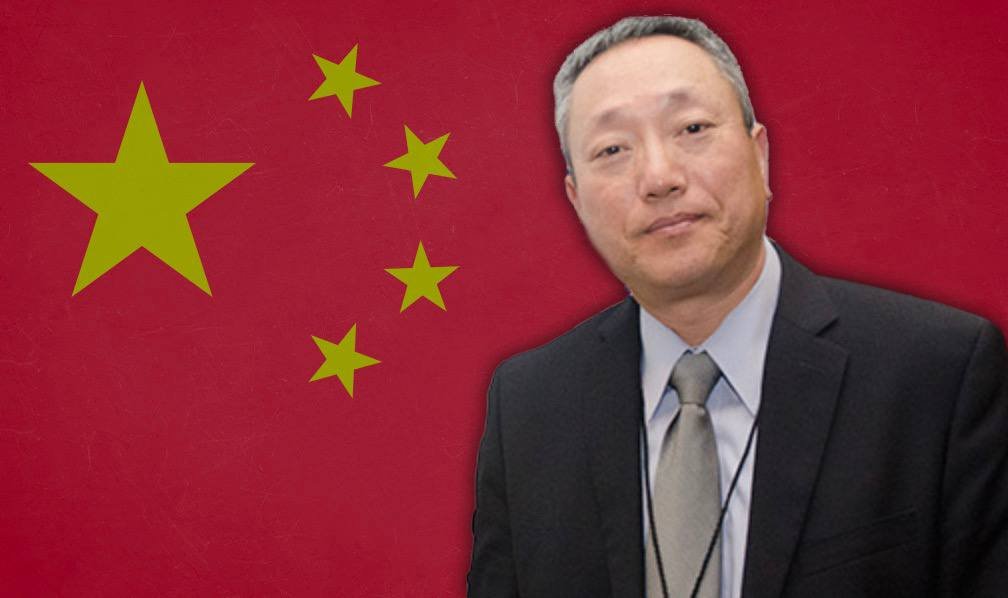
Vicky Arias, FISM News
[elfsight_social_share_buttons id=”1″]
Authorities arrested Eugene Yu, CEO of the election software company Konnech, on Tuesday for allegedly stealing personal election worker data and storing it on servers in China.
Konnech, an election management service, contracted with Los Angeles County in 2020 to recruit and train election workers, as well as track their payrolls and scheduling. The contract required all personal information regarding election employees be maintained within the United States and access to such information be granted only to U.S. citizens or permanent residents.
Yu, who resides in Michigan where he was arrested, stands accused of stealing poll workers’ personal information and storing it on Chinese servers. The state of California, which worked in coordination with police in Michigan on the arrest, is currently seeking the extradition of Yu back to California.
In a statement from the Los Angeles County District Attorney’s Office, Yu was “arrested as part of an investigation into the possible theft of personal identifying information” of poll workers. The statement explained that “under its $2.9 million, five-year contract with … [Los Angeles] County, Konnech was supposed to securely maintain the data and … only United States citizens and permanent residents [should] have access to it. District Attorney investigators found that in contradiction to the contract, information was stored on servers in the People’s Republic of China.”
The attorney’s office stated it doesn’t believe that voter information or election results were affected by Yu’s alleged actions. However, as stated by Los Angeles County District Attorney George Gascón, concern for “security in all aspects of any election is essential so that we all have full faith in the integrity of the election process.”
Konnech released a statement denying any wrongdoing, claiming that they are “continuing to ascertain the details of what [they] believe to be Mr. Yu’s wrongful detention by LA County authorities [and] any LA County poll worker data that Konnech may have possessed was provided to it by LA County, and therefore could not have been ‘stolen’ as suggested.”
On October 3, the day before Yu’s arrest, the New York Times published an article discrediting accusations against Konnech. The article targeted True the Vote, a non-profit dedicated to election integrity, which had previously called for an investigation into Konnech for reported corruption.
The New York Times lumped True the Vote in with “far-right election deniers” and “conspiracy theorists” for “suggest[ing] that [an] … election software company, Konnech, had secret ties to the Chinese Communist Party and had given the Chinese government backdoor access to personal data about … poll workers in the United States.”
The day after the article ran, Eugene Yu was arrested for allegedly stealing personal poll worker information.
Prior to Yu’s arrest, Konnech filed a lawsuit against True the Vote in September for defamation. Konnech claims, in part, that True the Vote has levied “baseless claims that Konnech, its founder, and employees are ‘Chinese operatives,’ who are … the subject of a long-running FBI counterintelligence investigation, [and] that Konnech obtained contracts with certain U.S. cit[ies] and county voting districts after bribing public officials.”
In response to Yu’s arrest on Tuesday, True the Vote released a statement, saying that they are “honored to have played a small role in what must have been a wide-ranging and complex investigation … [However], True the Vote was sued last month by Konnech to try to silence our organization … Konnech was assisted by many reporters who unblinkingly accepted their now discredited claims as fact, and simply repeated them.”
Several reporters and pundits alike took to social media following the arrest of Yu to point out how the mainstream media continues to try to label anything that doesn’t fit their narrative in inflammatory terms, even though these “conspiracy theories” have more than once proven to be accurate.
New: When a 'conspiracy theory' turns out to be…not a theory. Journalists try to fit a story into the 2020 election good guys vs. bad guys template, with embarrassing results. https://t.co/YFPqWDLE4O
— Byron York (@ByronYork) October 5, 2022
